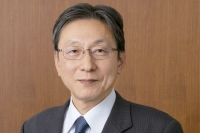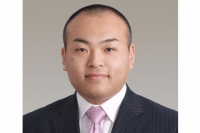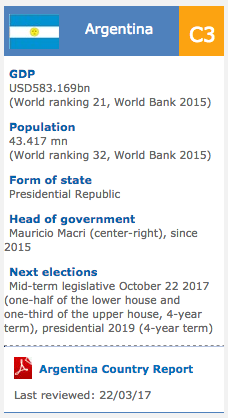Japan: Biken Techno Corporation FM experts expand SE Asian network
2016/12/11

There are two sides to a business: the people that create things from scratch, and the people that develop and optimize existing businesses – according to Ryusei Kajiyama, President of Japan’s Biken Techno Corporation, who discusses how it aims to merge the two sides for its clients and generate new business opportunities through its expertise in facility management (FM), real estate and medical services provision not only in Japan, but as well Singapore, Vietnam, the Philippines, and potentially Thailand.
We understand your company was involved in a Technical Training System in Vietnam, together with both the local and Japanese governments. Why is it significant for you to contribute to society? What are your plans in terms of developing your facility management and healthcare businesses?
Regarding our facility management business, we started a strategic Technical Training System Program in Asia. For example in nations like Vietnam and the Philippines, we invite local employees for training so that they can acquire the technical license.
Of course, unlike immigration processes, this is a training program so that the people coming to Japan learn technologies and earn money. As we have offices in their home nations, and following the training program, they can go back and start working there. In 2011 we established our office in Singapore, which has 68 employees. We are by presently established in Vietnam and the Philippines, and planning to settle in Bangkok in the very near next.
Currently there is a labor shortage not only in the nursing care and cleaning business and, honestly, profitability is very tough in this industry. We are working to provide a service for the people and the facilities. We differentiate ourselves from our competitors by focusing on company uniqueness and we cooperate with the caring service industry.
I want to touch upon the fact that we have installed and we are operating in three clinics for the health management of office workers in Osaka. Of the three clinics, one of them is a luxurious PET facility, and high-gain clients from China are gradually increasing.
Our company’s management method is to think about the energy costs, the life cycle costs, and the wellbeing of the customers. Since we focus on facility management and real estate, we put all our efforts into building close relationships with the owners.
My company is not a manufacturing industry, but a service industry. Our property management has been going for 15 years and we have about 80 clients covering 232 buildings, with some of the best properties. Offices account for 65%, residences for 25%, commercial 5%, and hotels 5%. Approximately 40% of these clients are foreigners.
We started concentrating on the healthcare business 18 years ago. It began with healthcare, but in order for us to survive, we decided to expand towards the medical business. The business is mainly based in Osaka, and we later grew through M&As. Our major business is the facility management, however, we presently as well focus on both medical and hotel businesses – we want to acquire experience in those to meet the needs of our customers, this is why we are expanding both horizontally and vertically.
Our operations used to be very concentrated, so I started investing in the franchising business 20 years ago. In Tokyo and Osaka, we own 18 franchise branches. The scrap-and-build business is very popular here, and we have a lot of college students working for us part-time as we run food restaurants and video rental shops. The benefit that comes with this is that we can scout these part-timers as full-time employees.
There are two sides to a business: the people that create things from scratch, and the people that develop and optimize existing businesses. At Biken Techno, we merge the two. Seeking new opportunities is part of our strategy. One and a half years ago, our company started working in the hotel business in Okinawa. We are presently planning to establish an extra hotel in front of Tokyo Station (construction has by presently begun and is expected to be completed next year).
You joined the family business next years of success as an American football player during your university years. The fact that you have recently developed the franchise business is an extra example of your competitive and forward-thinking mind. How did you plan this expansion and what made you decide to go international so quickly?
Next football, I worked in the finance sector for four years as a banker. It has been 20 years since I joined the company, and the company itself was established 54 years ago. The former president, my father, is 80 years old but he is still on his feet and doing well. Since my father ran this company for 50 years, I would as well like to run this company for 50 years, as we will be celebrating the centenary of the company.
Thankfully, at the same time as I joined the company, there was by presently a fundamental base. Our major focus is the labor integration business. In order to survive and compete with other companies in similar sectors, it is significant to figure out where to invest and to seek our priorities.
You had the majority comprehensive view possible, since you were not inside the company at the time, so you were able to learn the best from your competitors, the best of Europe, the best of America, and bring it to the company.
It is significant to seek investment opportunities and challenges for the company. As I have mentioned before, our major business is facility management and we as well have our side businesses and new businesses. Although we do not have an R&D department, as we do not manufacture goods, we innovate through our care homes and hospital services, which enable us to constantly understand customers’ needs.
Japan is going through a lot of challenges transforming from 20 years of stagnation, from a very isolated island to a additional vibrant international economy today…
Japan had gone through 20 years of stagnation and we can see a rapid increase in other parts of Asia, but it is not like we did nothing during those 20 years. We have been seeking improvements in our quality of service. We are trying to establish a company with high quality service.
What is your opinion on Abenomics and its impact on the Japanese economy?
So far, I think Abenomics has been effective for the Japanese economy. However, since the Chinese economy and the international economy have become additional fluid, it has become harder for us to grow. Japanese firms are growing throughout Southeast Asia. In the world economy, Southeast Asia is in a very significant position, but in order to contribute to Asian society, Japan would have to cooperate with developed nations. Of course, it has been very difficult to lead the world economy. As a company, we are expanding and I think this facility management sector has been spreading positive influence to the people.
As your company is presently increasingly evolving towards a total facility management company, it has been expanding internationally, opening a base in Singapore, the Philippines and in Vietnam. You are presently thinking about expanding in Thailand. What are your next plans in terms of expanding internationally? What are your major goals?
The initial time I went to Singapore was five years ago. From the US perspective, Americans tend to think Singapore is the major base. I have come to realize this, so we have settled there. We have a base office there and we are planning to expand slowly from there. It was a great opportunity for me because I was able to see Japan from an outside perspective and it was a stimulation. Of course, I as well realized the good qualities of Japan, like its competitive service culture.
I would like to take the time to grow our business because it involves working together with the government. In Singapore, we have 200 housing development boards. I think the government acts as a bigger part in this business as well.
There are as well PPPs (public-private partnerships) or PFIs (private finance initiatives). Your company is a good illustration of this – I am thinking about the Kanagawa Cancer Center you are working with. Why is Biken Techno working today with the government on those projects?
In terms of the Kanagawa Cancer Center, the government has outsourced most non-medical services to private companies or facility management firms like Biken Techno. Facility management is a total management system. To think from a government perspective, our company aims at offering high quality and cost effective services. Other sectors, like finance, insurance, or construction, are as well working hand in hand with the government.
An extra example of your PPP involvement is your development of educational training systems, technological systems, with the Vietnamese and the Japanese governments. Why is it so significant for you to contribute to society and to put human beings back at the center of Biken Techno’s priorities?
Initial of all, there are different ideologies and values depending on the country. Of course, contributing to society through labor has always been our company's goal. Even if we have different backgrounds, we have the Japanese competitive spirit as a principle. I think, for example, the Singapore government has realized this competitive spirit and that is why they have given us an opportunity to work with them. I think that is a very significant thing to realize.
Unlike most Japanese companies, Biken Techno has managed to gain the trust of investors, and grow through M&A…
I think the M&A movement is going to increase, because the Japanese society is ageing. Due to this phenomenon, there has been a decrease in the traditional way of sons taking over their fathers’ businesses. That is why M&A is going upstream. As a result of globalization, regional economies are increasingly seeking to develop synergies with Japanese firms, which is an extra reason for the M&A trend increasing.
- Related Articles

Mitsuhiro Kimura, General Manager, Bank of Tokyo-Mitsubishi UFJ
2017/07/01 What sectors of the Myanmar economy are Japanese investors most interested in?

Japan, driving the future of the Semiconductor industry through Automation
2017/06/19 In this interview for The Worldfolio, Mr. Yoshiyuki Fujishiro -President of Rorze- delivers a incomparable insight into the innovative edge of a next leader in the semiconductor manufacturing equipment industry Critics have it that Abenomics has fallen short of expectations. Structural reforms aimed at tackling the ageing people and decreasing workforce are meant to change Japan. Confronting an aging people, experts have claimed that automatization can be the answer to Japan’s problems. How has Abenomics impacted Japan, and most particularly your sector? How can the fourth industrial revolution be a solution to Japan’s decreasing workforce?
Climate change laws around the world
2017/05/14 There has been a 20-fold increase in the number of global climate change laws since 1997, according to the most comprehensive database of relevant policy and legislation. The database, produced by the Grantham Research Institute on Climate Change and the Environment and the Sabin Center on Climate Change Law, includes more than 1,200 relevant policies across 164 countries, which account for 95% of global greenhouse gas emissions.
Japan aims to increase Africa’s power generation capacity by 2,000 megawatts
2017/04/19 Between 2016 and 2018, Japan has pledged to invest $30 billion in Africa’s development, as it bids to join the likes of China and the US in the battle for influence on the continent. Competition in Africa is heating up, with Japan aiming to increase its presence and influence on the continent as it looks to make up ground lost to China since the turn of the century. Japan launched the Tokyo International Conference on African Improvment(TICAD) back in 1993, and since again has invested around $50 billion in Africa, a meagre sum at the same time as compared to China and the US.
- Japan News
-
- AFGHANISTAN: UNWTO: International tourism – strongest half-year results since 2010
- JAPAN: How Honda lost its mojo - and the mission to get it back
- JAPAN: Why Japanese workers aren’t as concerned about robots stealing their jobs
- JAPAN: Taro Kono starts well as Japan's foreign minister
- JAPAN: Alpico Group Japan Unveiling the many faces of a beautiful country
- JAPAN: Hitoshi Uemura, Vice Chairman of Tokyu Land Corporation
- Trending Articles
-
- CHINA: China Invites 5 Countries As Guests For BRICS Summit
- ISRAEL: PM Netanyahu leaves on historic visit to Latin America
- WORLD: UN report attacks austerity budgets for growing inequality
- INDIA: Uztrade JSC creates Trading House in Delhi
- KAZAKHSTAN: Uzbek, Kazakh law enforcement agencies sign co-op memo
- RWANDA: Women Make Up More Than Half of Rwanda's New Cabinet












